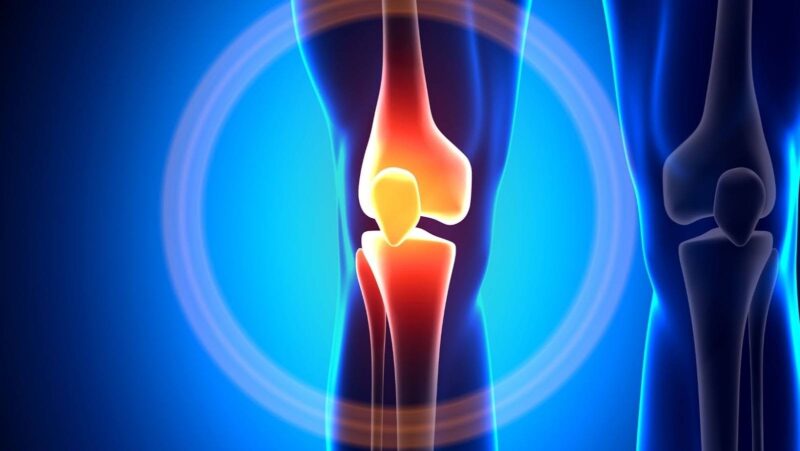
The health condition of obesity extends past physical looks because it impacts multiple bodily systems and causes serious, persistent diseases. People dealing with obesity typically discover that weight loss requires more than basic diet and exercise strategies.
The correct approach to losing weight while improving overall health emerges from medical weight loss programs, which healthcare professionals specifically design under supervision.
Medical weight loss adopts individualized, evidence-based treatments since it investigates the fundamental reasons for obesity while avoiding fad diets that employ standard approaches for everyone.
Are You an Ideal Candidate for Obesity-Related Medical Weight Loss Treatment?
Medical Weight Loss is an appropriate treatment for you because a BMI reading above 30 confirms your status as clinically obese.
The medical weight loss program is available to people with a BMI of 27 or higher, which includes patients who have any of the obesity-related diseases, such as type 2 diabetes, high blood pressure, sleep apnea, and joint pain. Candidates seeking medical weight loss care share specific health challenges as an important qualifier.

Pursuit of weight loss through traditional dieting has failed multiple times, while attempts to maintain permanent results have failed as well, as emotional eating and physical restrictions both count as indicators of candidacy. Medical weight loss programs provide the most beneficial support for individuals who need medical oversight along with additional backing and monitoring.
The mental condition of a person is as vital as physical preparedness. Senior Weight Loss Solutions requires patients who will make life adjustments and follow a detailed program, including regular healthcare check-ups with nutritional experts and behavioral therapists, and potential medical treatments, including prescriptions.
How Medical Weight Loss Can Help People Struggling With Obesity
Medical weight loss offers a carefully designed system that helps obese patients achieve their weight management goals. A medical weight loss program diverges from standard diet approaches by detecting the main factors behind weight gain, along with individualized treatment that receives continuous medical support.
Healthcare practitioners use this research-based approach to help individuals achieve long-term weight loss safely and improve both their health and self-confidence, along with their life quality.
Customized Treatment Based on Individual Health Needs
Medical weight loss programs start their evaluation by performing extensive tests involving physical exams as well as medical history assessments, and laboratory work.
The medical professionals apply the gathered information to build a customized framework that directs your treatment toward specific objectives and challenges. Your medical treatment will focus on eliminating the fundamental triggers of obesity while ignoring the presentation of weight gain symptoms since hormonal imbalances or insulin resistance, as well as psychological factors, might be responsible for your excess weight.
Different weight loss approaches may include dietary portions with limited calories, doctor-prescribed drugs, along with physical exercise recommendations and behavioral treatment strategies. Each selected element of the treatment stems from what matches your individual health needs and personal lifestyle to create more effective outcomes while reducing the chances of relapse.
Professional Monitoring to Ensure Safe Progress
Medical weight loss provides ongoing professional supervision through physical and mental healthcare specialists, including physicians along with registered nurses and dietitians, and mental health practitioners.
You benefit from routine medical assessments to ensure body health and identify early indicators of problems, including nutrient insufficiency and medicine-related adverse reactions.
The progress monitoring in medical weight loss surpasses DIY diets because it uses fact-based evidence rather than uncertain assumptions.
Your plan includes quick adjustments for any problem that surfaces, which maintains your progress. Monitoring procedures ensure the reduction of potential complications, which leads to better long-term success rates.
Reduction in Risk for Chronic Diseases
People who suffer from obesity face increased danger of developing several medical conditions, including heart disease, along with stroke and type 2 diabetes, sleep apnea, and specific cancers, and others. The medical weight loss approach enables weight reduction while simultaneously decreasing your vulnerability to fatal diseases.
Most patients report that their blood pressure improves and their cholesterol levels and blood sugar readings reach better levels in the few weeks after starting medication treatment under medical supervision.

Under doctor supervision, patients may reach the point where their chronic condition medications become unnecessary to continue treatment.
A lifetime benefit of medical weight loss leads you to both enjoy superior health and achieve extended life expectancy and greater activity levels.
Sustainable Habits for Long-Term Weight Management
Weight loss through quick fixes produces temporary results that depend on establishing enduring behavioral alterations. Medical weight loss programs teach you lasting habits by providing education while offering behavioral counseling plus accountability support. This is essential to ensure your results are sustainable. For long-term weight management, you will learn about both healthy eating habits and emotional eating trigger control, as well as find suitable ways to remain active through your daily routine.
The program structures itself according to your development needs as it handles your weight loss phase alongside a successful transition to long-term maintenance. The modifications you learn in the program will transform into lifestyle behaviors after the program finishes, so your results can be sustained long-term.
Boosted Confidence and Overall Quality of Life
Weight reduction leads several patients to experience major improvements in their self-esteem as well as mood and confidence levels. As patients lose weight, social activities get simpler, and their energy increases with enhanced sleep quality. Mental health often benefits, too. The treatment of depression and anxiety proves successful for numerous patients whose conditions had obesity or obesity aggravated these obesity. A renewed positive attitude generated by weight loss tends to extend beyond body wellness by enhancing career development and relationship success, and personal objective achievement.
Medical weight loss programs help patients recover their identity as well as restore their physical appearance. This contributes to their peace of mind thereby increasing confidence and self-esteem.










